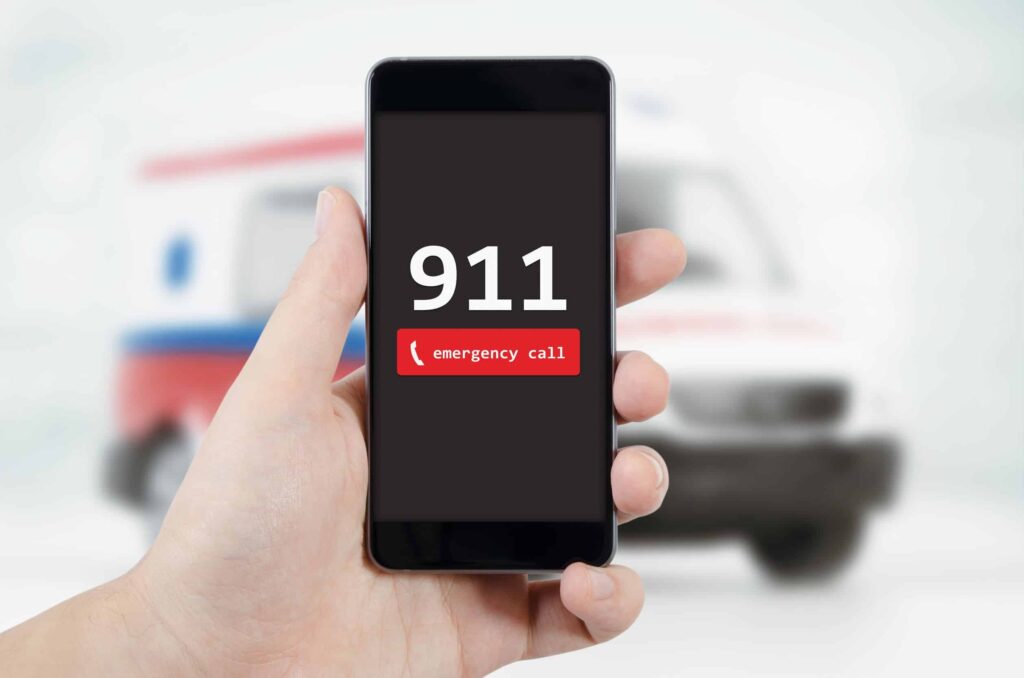Colorado Gun Laws: What You Need to Know About Concealed Carry
June 25, 2025

How an Alleged Victim May Be Able to Help with Your Colorado DV Charge
Drinking This Halloween? Beware Colorado Disorderly Conduct Charges
Posted by: Jacob E. Martinez
Category: Drug Crimes | Drug Possession | Good Samaritan Law
In 2017, the number of drug overdose deaths in Colorado was the highest it has ever been – 959 people lost their lives to different controlled substances. Overdoses happen for many reasons, but in order to survive almost everyone needs the same thing – serious medical attention.
Unfortunately, the laws against drug use and the heavy punishments for drug crimes prevent many people from reaching out when they notice the signs of an overdose. In many cases, they don’t want to risk the chance of being put behind bars.
Luckily, Colorado understands this fear and has addressed it with our 911 Good Samaritan Law. State legislators hope that this law can help to decrease the state’s high rates of overdoses.
Essentially, the law states that if you seek emergency medical attention because you believe that you or someone you know is overdosing, you won’t face criminal prosecution.
The law also states that you are immune as long as you identify yourself to emergency services and cooperate with professionals. If you lie or get aggressive with the people who are trying to help, you may not qualify for the Good Samaritan Law.
So, if you notice that a friend is showing signs of an overdose, you can call 911 or law enforcement officials, or take the friend to the appropriate medical facilities without the fear that you or your friend will be charged with a crime.
The Good Samaritan Law exempts you from the following charges:
However, it is important to know that the law does have limitations. Specifically, it does not exempt you from sale or trafficking charges. It also only exempts you from an arrest immediately after reaching out to emergency services. You cannot claim that you qualify for the Good Samaritan Law if you are arrested a week after reporting an overdose to law enforcement or 911.
If you are on the scene when someone is overdosing, do not be afraid to call 911! Do not put your fears of criminal prosecution over the health and safety of others. Even if you were engaging in the use of controlled substances, you will not get charged with possession or use.
If you have been charged with possession even though you sought out medical attention before your arrest, talk to a criminal defense lawyer immediately. Again, the Good Samaritan Law does not exempt you from future charges if you reached out in the past, but if you can provide proof that shortly before your arrest, you tried to reach out to emergency services, you may see your case dismissed.
Be safe this year. Colorado does not want to see another record-breaking year for overdoses. Do not be afraid to reach out to emergency services. Know the laws that can help you and the people around you stay as safe as possible.
About the Author:
Denver-based criminal defense and DUI attorney Jacob E. Martinez is a knowledgeable and experienced litigator with a record of success providing innovative solutions to clients facing criminal charges of any severity. Mr. Martinez has been designated a Top 100 Trial Lawyer by the National Trial Lawyers and has been awarded both the Avvo Client’s Choice Award and Avvo Top Attorney designation, evidencing his reputation for his exemplary criminal and DUI defense work and high moral standards.
Jury Trial - Not Guilty
Jury Trial - Not Guilty
Arapahoe 1st Degree Assault/Vehicular Assault
Jury Trial - Not Guilty
Denver Domestic Violence Assault Case
Jury Trial - Not Guilty
Denver D.V. Assault
Jury Trial - Not Guilty
Denver Careless Driving Resulting in Death
Jury Trial - Not Guilty
Jefferson County Felony Menacing
Jury Trial - Not Guilty
Adams County DUI
Jury Trial - Not Guilty
Jefferson County DUI
Jury Trial - Not Guilty
Jefferson County DUI
Jury Trial - Not Guilty
Jefferson Vehicular Assault/DUI
Jury Trial - Not Guilty
Jefferson County DUI
Jury Trial - Not Guilty
Boulder County DUI case
Jury Trial - Not Guilty
Arapahoe County DUI case
Jury Trial - Not Guilty
Adams County DUI case
Jury Trial - Not Guilty
Douglas County DUI case
Jury Trial - Not Guilty
Gilpin County DUI case
Dismissed
Broomfield County Probation Revocation case
Dismissal
Arapahoe County DUI case
Deferred Judgment
Arapahoe County DUI case
Deferred Judgment
Douglas County DUI case
Deferred Judgment
Larimer County DUI case
Deferred Judgment
Arapahoe County DUI Case
Deferred Judgment
Denver Felony Burglary Case
Deferred Judgment
Arapahoe County DUI case
Dismissed
Arapahoe County Protection Order Case
Dismissed
Golden Destruction of Property case
Dismissed
Jefferson County Protection Order case
Dismissed
Jefferson County Domestic Violence case
Dismissed and Sealed
Jefferson County DUI case
Dismissed
Denver Major Traffic Offense case
Dismissed and Sealed
Broomfield County Domestic Violence case
Dismissed
Summit County DUI Revocation
Dismissed
Denver DUI Revocation
Dismissed
Denver DUI Revocation
Dismissed
Denver DUI +.2 Involving Accident and Injury case
Dismissed
Denver DUI/Habitual Traffic Offender case
DISMISSAL
Denver District Aggravated Theft
Dismissed
Greenwood Village Assault case
Dismissal
Elbert County DUI
Dismissed
Arapahoe County Domestic Violence case
Dismissal
Jefferson County DUI
Dismissal
Denver Municipal Assault
Dismissed
Boulder County Domestic Violence Assault case
Dismissed
Wheat Ridge Assault case
Dismissed
Jefferson County DUI case, with 2+ Prior Convictions
Dismissed
Arapahoe County Domestic Violence case
Dismissed
Broomfield County Domestic Violence case
Dismissed with No Charges Filed
Jefferson County Felony Theft case
Dismissed
Arapahoe County Felony Theft case
Dismissed
Boulder County Felony Theft case

